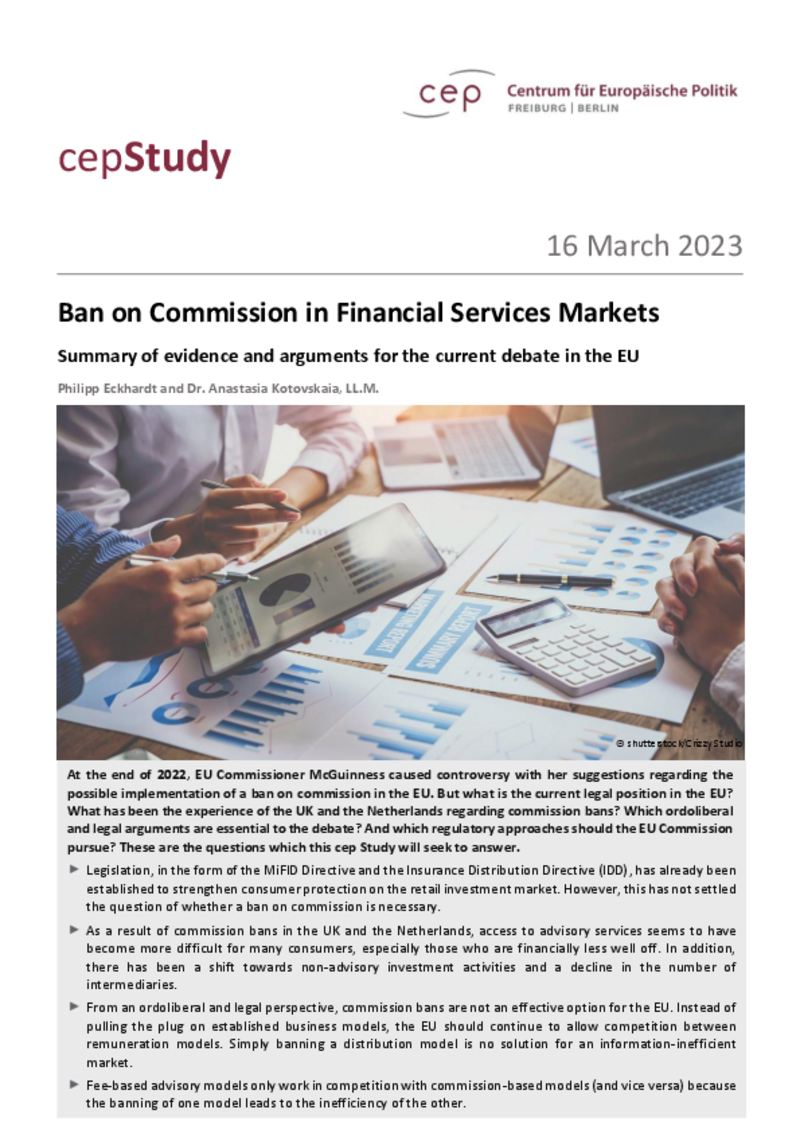
Financial Markets
Ban on Commission in Financial Services Markets (cepStudy)
cepStudy
"In the case of an inducements ban, providers of financial and insurance products would have to change their business models, for instance in the form of fee-based advice. Instead, providers should strengthen consumers' knowledge of financial issues," demands cep economist Philipp Eckhardt, who has weighed up the pros and cons of commission bans with cep legal expert Anastasia Kotovskaia.
Accordingly, strengthened consumer knowledge contributes to informed decisions. "A ban on inducements is not appropriate. There are other ways to enhance investment and insurance advice," says Anastasia Kotovskaia. For example, the legislator should tighten disclosure requirements to make business models more understandable to consumers. At the same time, a level playing field should be maintained, which does not favour or put at a disadvantage any compensation forms. A further argument against the inducements ban is that a restriction of distribution channels also interferes with the right of financial service providers to freely exercise their profession.
The cep therefore considers competition between advisory models and distribution structures to be indispensable. There should be no obstacles to market access. "Fee-based advisory models do only work in competition with inducement-based models – and vice versa," Eckhardt emphasises.
This study is funded by a voluntary donation from MLP SE.
Download PDF
| Ban on Commission in Financial Services Markets (cepStudy) (publ. 03.16.2023) | 468 KB | Download | |
 | |||




